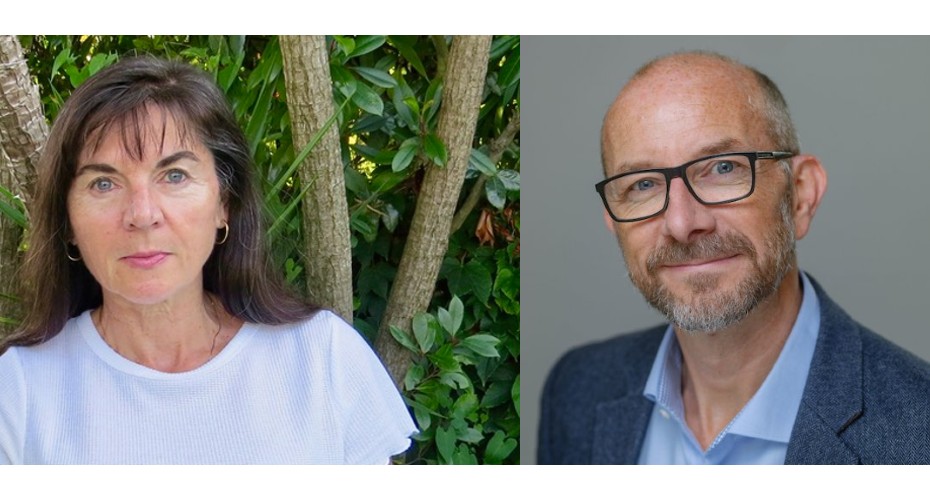Exeter experts awarded prestigious Institute of Physics medals

Professor Isabelle Baraffe and Professor Nick Stone have received notable prizes from the Institute of Physics
Two world-leading researchers from the University of Exeter’s Physics and Astronomy department have received prestigious national awards in recognition of their long-standing, pioneering work.
Professor Isabelle Baraffe and Professor Nick Stone have received notable prizes from the Institute of Physics, announced today.
Professor Baraffe has been named as the 2024 winner of the Fred Hoyle Medal and Prize, while Professor Stone has been awarded the Rosalind Franklin Medal and Prize.
The awards are designed to recognise, celebrate and reflect the impact and applications of physics in everyday life, the breadth of the discipline in academia, industry and medicine, and its impact in ‘extraordinary human achievements’.
Professor Baraffe, who is jointly affliated with CRAL/ CNRS and ENS de Lyon, as well as Exeter, received her award for her pioneering research into theoretical astrophysics, which has revolutionised understanding of the structure and evolution of stars and planets.
She has made significant advances in research into brown dwarf and low-mass stars, pioneering structure and evolution models to successfully explain and predict the peculiar observational properties of these low mass objects. In her citation, she was praised as a “world leader in the field”,
Speaking after hearing the news, Professor Baraffe said: ““I am delighted to receive this prestigious award from the IoP. This is a wonderful motivation for me to continue understanding the fascinating physics of stars.”
Professor Stone received his award for his pioneering use of light for diagnosis and therapy in healthcare. Most significantly, he has led a large collaborative mulit-institutional team to develop novel Raman spectroscopic tools and techniques for rapid in-vivo cancer diagnosis and monitoring.
With experts from the University of Exeter, University of Bristol, and Gloucestershire Hospitals NHS Foundation Trust, he developed a ground-breaking technique to help detect and diagnose oesophageal (food pipe) cancers.
The project sees a new medical device that uses light to pinpoint cancerous tissues or cells almost instantaneously, using a laser-based technique called Raman spectroscopy. This new approach could significantly reduce the time for diagnosis and treatment by providing results in under 30 seconds, compared to up to two weeks for current diagnosis techniques.
The technique allows medical experts to measure the light scattered by tissues when a low-power laser is shone onto it, as the light changes if it is on healthy or diseased tissues, meaning pre-cancerous or cancerous tissues can be detected rapidly.
Professor Stone said: “I am delighted and honoured to have been awarded the IoP Rosalind Franklin Medal for 2024. Rosalind Franklin was a real pioneer of the exploration of biological structure using physical techniques. This honour is recognition of the dedicated work of my team of scientists, clinicians and collaborators; working together over many years to develop novel physics solutions to study pathology driven molecular changes in cancerous cells and tissues.”
IoP President, Professor Sir Keith Burnett said; “Today’s world faces many challenges which physics will play an absolutely fundamental part in addressing, whether its securing the future of our economy or the transition to sustainable energy production and net zero. Our award winners are in the vanguard of that work and each one has made a significant and positive impact in their profession.”



